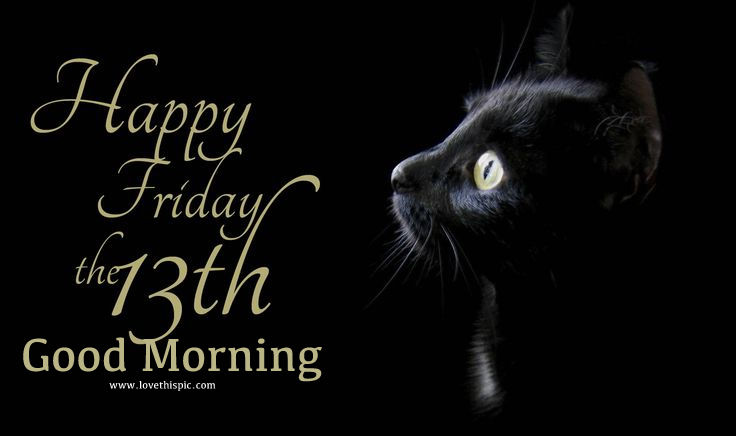
May 13, 2022
Where do the superstitions come from?
People had to find explanations for things they did not understand, and they did it the best they could. Those beliefs have survived for centuries, because it is easier to live by believing in something. Friday the 13th, black cat, spilled salt. What should we do? Bad luck is coming. What kind? The ones foreshadowed by our superstitions. They still can make us shudder. We live in the 21st century, but we still believe in superstitions from hundreds of years ago. Even those who laugh at superstitions, often prefer to knock on unpainted wood for safety, although they do not know why. But our ancestors tapped on a wooden sepulchral plank to scare away the devil who was lurking to grab the human soul.
Superstitions are beliefs that have no rational basis. Some of them may have arisen simply by mistake, while others are deeply rooted in people’s fears. So much so that they have a serious influence on life decisions. Superstitions are usually not based on facts, but have their source in the tradition and history of a given region. Most of us probably don’t even know why we shudder when we see the thirteenth day approaching calendar, especially when it happens to be Friday, or a black cat running across our path. Meanwhile, it turns out that many of our prejudices have their source in the colorful history and tales from many centuries ago. And although we like to laugh at superstitions today, it cannot be denied that we have fallen victim to them more than once. Likewise, we cannot forget that they have been with us from the very beginning and have often influenced important decisions. That’s why I made this list: when something becomes known, it’s easier to fight it. If you want to know why you shouldn’t walk under a ladder and if the black cat really brings bad luck, read my post and you will find out about the most popular superstitions that – despite the high level of civilization development – are still part of our culture.

Among the most popular superstitions is the belief that you are should not to greet over the threshold. In ancient China and India, as well as in the ancient Slavs, it was believed that the threshold separates the safe interior of the house from the evil world outside. Thus, a handshake between people on both sides, or the visitor’s standing on the threshold, carried the risk of bringing evil forces from outside into the house.
Knocking on an unpainted wood brings good luck
Our ancestors knocked on a board when the deceased lay on it. This was to scare the devil from lurking upon the human soul; over time, people started knocking on any unpainted wood to drive away all the evil. This is because of the old belief that good spirits live in trees, so knocking on wood summons these benevolent beings. Now we most often knock on unpainted wood.
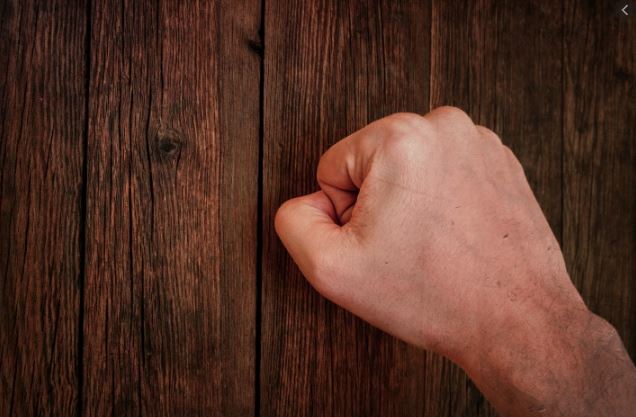
The black cat means bad luck
Probably everyone knows this superstition: it’s better to beware of black cats that run across someone’s path. As far back as ancient times, cats were thought of as demonic creatures. The night was associated with the time ruled by Satan. Cats seeing in the dark were eager to hunt at night, which means they were identified with truly evil animals. Their eyesight was awe-inspiring and in the Middle Ages was associated with cats casting a charm causing disease or misfortune. This superstition stemmed from a misunderstood belief that lonely women (usually older ones) who surrounded themselves with cats were actually witches. These witches eventually became cats themselves. That’s why the black cat, who might once have been a witch, means a bad luck. In the Middle Ages, black cats were considered companions of witches. Some people even claimed that black cats can turn into a witch or a demon after 7 years. People with enormous power, such as Hitler or Napoleon, with sufficient resources and the will to conquer entire nations, were afraid of little black kittens.

A horseshoe brings happiness
If you find it, you have to pick it up with your right hand, make a wish, and throw it over your left shoulder, leaving it where it will land. According to some traditions, the number of nails left in the horseshoe will indicate how many years of happiness await the finder; another tradition teaches that a horseshoe should be placed over the entrance to the house. It will ensure success and money for the family living in it. There is also the question of the proper placement of the horseshoe. It works best when it is hung in the “U” position. It will then attract positive events and happiness. In turn, the horseshoe hung upside down will protect against evil powers, envy, jealousy and unwanted guests. In other words it will protect the house from negative energy. The source of the superstition is most likely the fact that there are seven nail holes in the horseshoe and seven is a lucky number. The horseshoe is also made of iron, which is believed to ward off evil spirits.
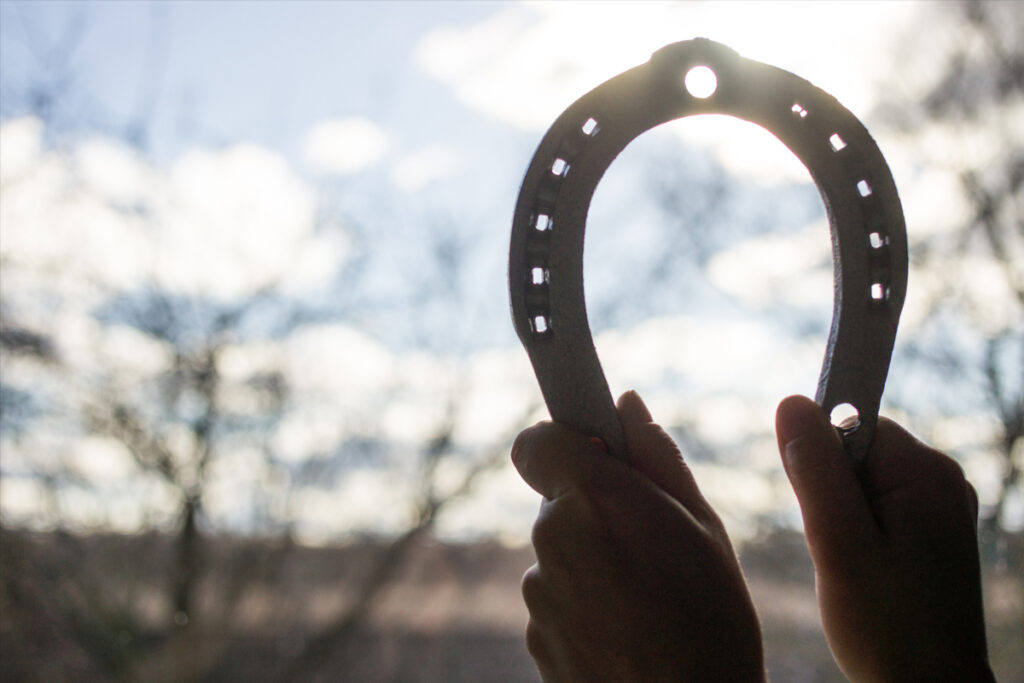
A broken mirror will bring seven years of misfortune
There is a contradiction here, since seven is a lucky number. But superstition is not a matter of logic. According to some sources, the misfortune is to come from the souls freed by the shattering of the mirror. This superstition arose at the beginning of our era, then the glass mirror was invented, its price was exorbitantly high, so breaking it was a real misfortune, it was believed that it was to bring 7 years of bad luck. Interestingly, the same period of time is needed for the complete replacement of almost all cells in the body (except the nerve and egg cells). Since the mirror was considered a reflection of the soul in the old days, breaking it would become harmful to the human spirit. In order to counteract the misfortunes, it was necessary to bury the mirror at night in the moonlight. Another superstition is connected with mirrors, talks about soul-catching mirrors. Most people use mirrors on a daily basis, which makes them soulless according to this superstition. There is a superstition, according to which looking at your reflection steals our soul and imprisons it in an object that reflects our image. Now it’s easier to understand why the evil queen uses the mirror to harm Snow White, or why Narcissus is enslaved by his own reflection, or why vampires do not have it.

Friday the 13th
Many of us fear Friday the 13th. The fear of the number 13 is one of the most common superstitions. Its strength is so great that some hotels around the world don’t have thirteenth apartment or thirteenth floor. This superstition is still alive and very popular. Some architects, for example, avoid a thirteen-step staircase when designing buildings. The most popular explanation for the origin of this superstition is that Judas was the thirteenth guest at the Last Supper and Christ was crucified on Friday. The combination of these two facts makes for the most unlucky day of the year. Others believe that Friday the 13th has its roots in France. In 1307 the king, Philip IV the Beautiful ordered the arrest of all French Templars. On Friday the 13th he executed them, burning 54 members of the order at the stake. Among them was also the Grand Master who cursed the King and Pope who died a year later.

Interestingly, 13 is not unlucky in all countries. In Japan, the unfortunate number is four. This is because its name sounds similar to the word for death (shi). For this reason, some Japanese buildings do not have a fourth floor (at least according to the official numbering). As you can see, unlucky numbers can vary by country and by culture or language. Is any number really unlucky then?
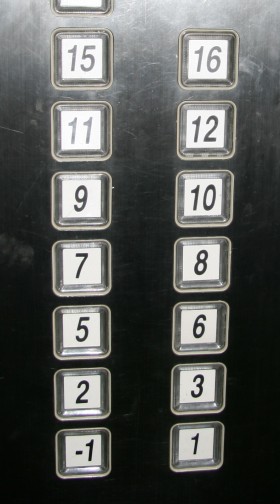
A four-leaf clover brings real happiness
This superstition has been with us since ancient times. According to it, finding a four-leaf clover brings good luck. In some parts of the world, it is also believed that the find should be eaten or put in a shoe. Apparently, this is how the magic properties of the four-leaf clover are activated. After such a ritual, according to some people, the first person you meet will turn out to be the love of your life. The most likely source of this superstition is that the ancient Celts believed in the great power of the four-leaf clover. They believed that it warded off evil powers.
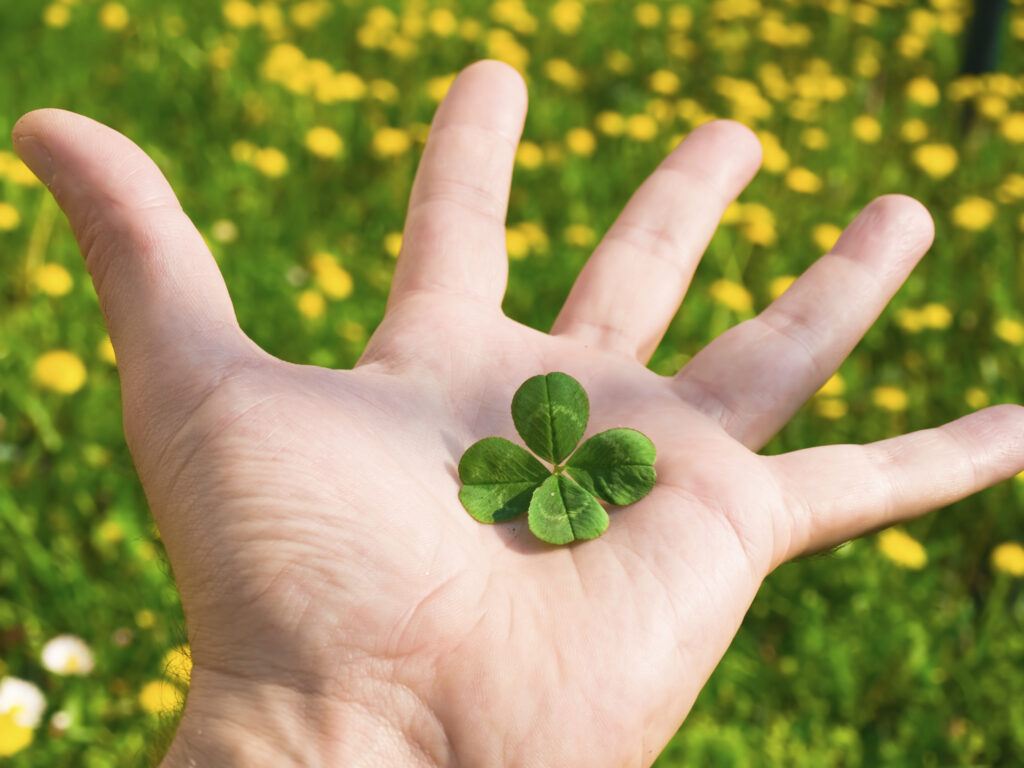
Walking under the ladder is a bad luck
It was believed that walking under the ladder caused the protective spirit of the man sitting on top of his head to be knocked off. According to one theory from ancient Egypt, a ladder leaning against a wall forms a triangle that the Egyptians considered sacred. Therefore, going through it was treated as a very undesirable thing. Moreover, crossing the triangle that forms between the earth and the sky disturbs the harmony of the world. First and foremost, avoiding walking under a ladder is a common sense. The fact that it stands against the wall means that there is a work is in progress above. By walking under the ladder, we risk something falling on our heads. However, there are also other superstitions associated with the ladder. According to other theories, the superstition of walking under a ladder is related to the Middle Ages and the fact that the ladder leaning against the wall resembles gallows. Thus a walking under the ladder looks like a way to be executed.
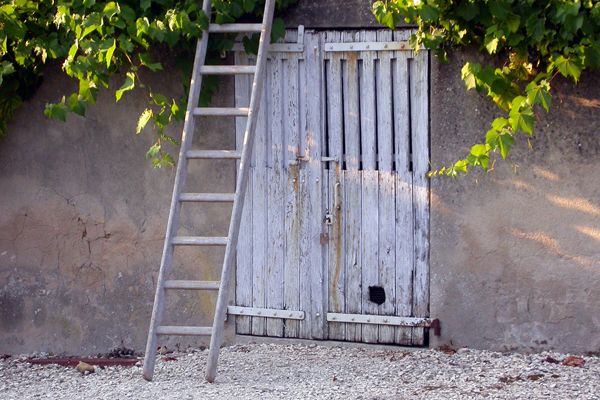
Spilling salt will bring bad luck
In the past, salt was such an expensive and desirable product that losing it aroused great emotions and could lead to a great quarrel. In the old days, salt was considered an extremely valuable substance, capable of purifying and warding off evil spirits. For over 3,000 years BC, the Sumerians were throwing a handful of salt over their shoulder to ward off bad luck. On the other hand, spilling salt by accident was considered a bad sign. In order to counteract the negative effects of this incident, one had to take a pinch of salt as soon as possible and throw it over the left shoulder. According to beliefs, for a moment we will blind the devil lurking behind the squares on the left side.
Crossing fingers for good luck
This gesture is used to summon happiness, also when we are lying and do not want to be caught. Originally, this gesture was used by the persecuted Christians who recognized each other that way. And enchanting a lie in this way may be related to the belief that the cross can save someone from hell.
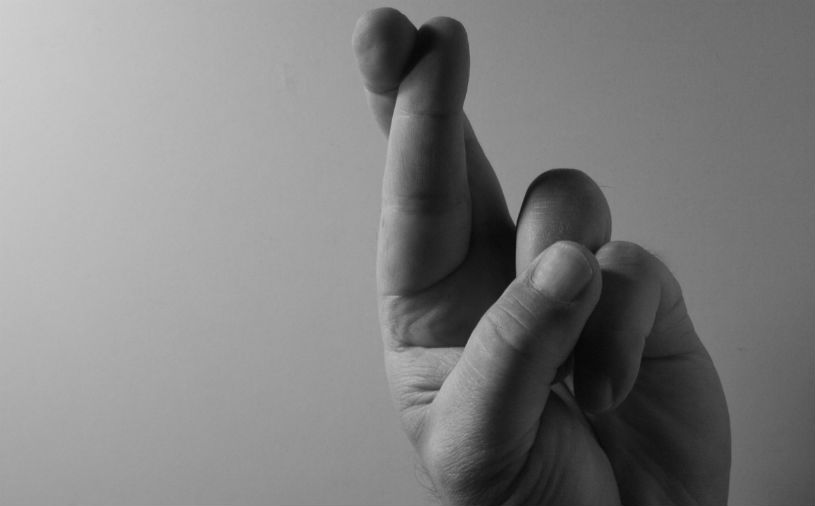
Chimney sweeper brings good luck
This superstition has its origins in times when the heating of the house depended on the cleanliness of the chimney. So the chimney sweeper was, in a way, the guardian of the hearth. Why do we touch the button when we see him? Until the 13th century, the button was used as an amulet. Therefore, by grabbing a button and making a wish, we can confidently hope that it will come true.
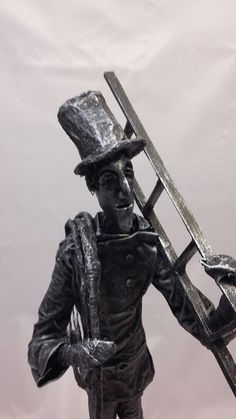
Red ribbon as protection against a bad spell
Red is a symbolic color that is supposed to protect against all evil. In ancient Rome red was used as a protective sign, therefore, in prams and cots, a red bow or a medallion or a cross on a red ribbon is often hung in order to chase away evil powers that could captivate the child.

If you turn back, something bad will happen
Turning off the road was considered a bad sign in many cultures. A man who turns back from his chosen path breaks the magic circle of life. If he does, he should sit down for a while or twist around his axis to give the circle a chance to close again.

The sound of bells
Have you ever wondered why bells ring during important ceremonies (e.g. weddings)? This comes from the old belief that these sounds scare away evil spirits.
Old, new, borrowed and blue – a popular wedding tradition
It comes from the Victorian era and is about giving the bride four gifts: something old as a symbol of continuity; something new as hope and future; something borrowed as borrowed happiness, and something blue for purity, love and faithfulness.

Speaking of weddings, they should take place in the month with the letter R. The letter R symbolizes the family and is to ensure happiness for the married couple.
A wish upon the stars
Some express wishes to shooting stars, others to the first star in the evening sky. Both habits are based on European beliefs that the gods sometimes looked at the Earth and the stars fell down as they moved the sky. The Greeks also believed that shooting stars were actually human souls.

It’s a bad luck to open an umbrella indoors
One explanation comes from the time when umbrellas were used to protect against the sun. Thus, opening an umbrella in the room was an insult to the sun god. According to another theory, umbrellas protect us from storms in life, so opening such a talisman at home offends the spirits defending our four walls.

The bird poo will bring wealth
If a bird drops a poo on someone or their posession it means that he / she will be lucky and may expect wealth. The more birds the better.
Unlucky three cigarettes
From the Crimean War to World War I, it was believed that lighting three cigarettes with one match brought bad luck. According to superstition, by the time the third pipe fires, the sniper has already located his target. Others say the superstition came from Ivar Krueger, the match magnate.
Soul-catching photography
A superstition similar to the one with the mirror. When photography was invented in the 19th century, people believed that photographing someone would steal their soul. Therefore, if someone had a photo of another person, he had power over it – also spiritually.
The new broom used for the first time in a new home is bad luck
There are many superstitions about brooms; you could even create a separate list. However, according to this particular superstition, if you sweep a new house with a new broom before you get inside, you literally sweep away happiness.
Lucky rabbit’s foot
According to this superstition, the left hind leg of a rabbit hunted in the cemetery in the full moon brings extraordinary luck to the new owner.
Cheers
The custom is said to have been started by Pope Gregory the Great during the plague. Others say that when sneezing, the soul leaves the body and the heart stops for a moment. So such a saying is a welcome back among the living.
Damned birds
The vertebrate birds can literally twist their heads. Some believe that if a bird turns its head towards someone, that someone may already order a coffin.
Itchy hands
There are many variations of this superstition, but the general point is that itchy hands indicate greed or a craving for money. Some people think that if the right hand itches – money will be lost, if the left hand – money will come to us. Do you believe in superstitions?
Which ways to reverse “bad luck” have you ever used in your daily life, or have you ever found a four-leaf clover that brought you good luck? Leave a comment below, I am curious about your opinions.
